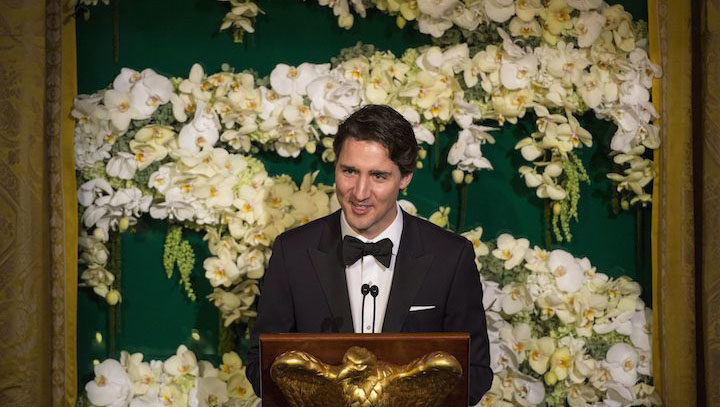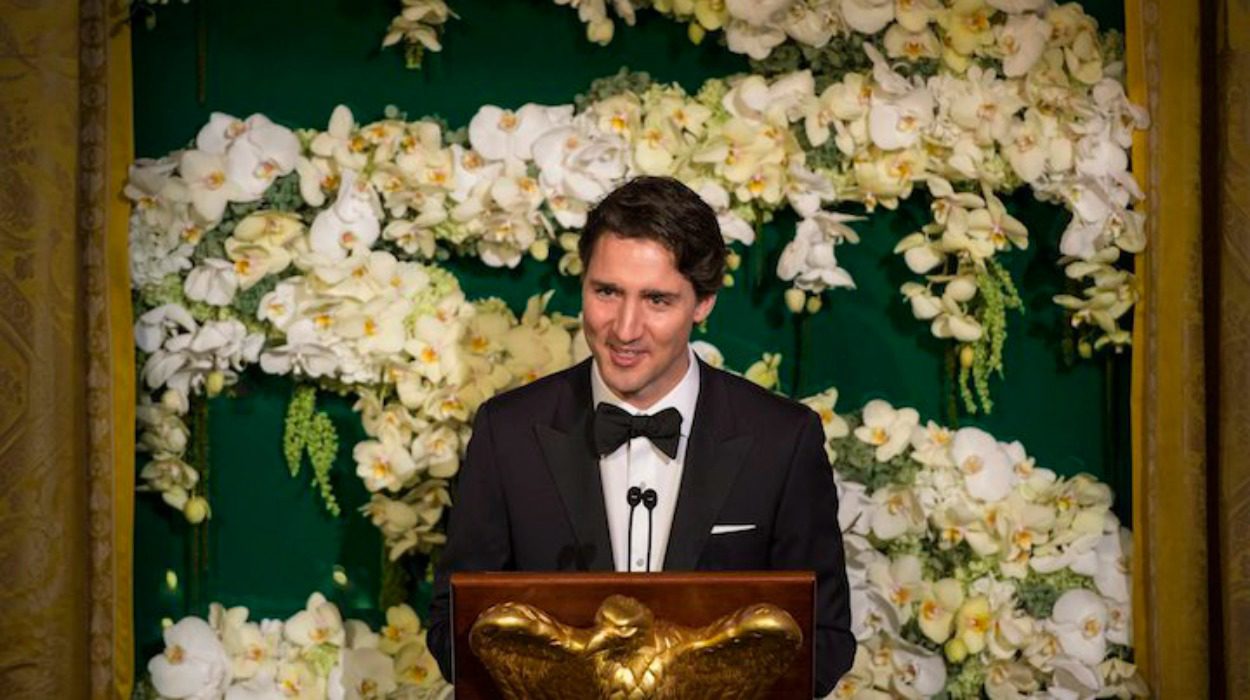
A couple of weeks ago, Justin Brake, the editor of the Independent, found himself on an arrest list for covering the Indigenous-led protests at Muskrat Falls in Newfoundland. A week later, news broke that Montreal police had been tracking Patrick Legacé’s iPhone, monitoring his location through the phone’s GPS functionality. A few days after that, half a dozen journalists in Quebec declared that they had been spied on by provincial police.
Despite whatever pride Canadians have in our nation’s charter rights, one thing is clear: Canada has a press freedom problem. This week, Canadian journalists and free speech advocates called on the Trudeau government to reaffirm its commitment to freedom of the press.
[su_pullquote]For journalists, whatever warm, lingering afterglow left after the election of Justin Trudeau—an election that seemed to promise an improved relationship between the press and the state—seems increasingly dim.[/su_pullquote]“My province seems to be taking this issue seriously. I hope the federal government will also take a leading role,” Legacé said at a November 16 press conference. “Our Prime Minister has famously said during the last election campaign that journalists are to be respected in this country. Now is the time to go beyond words and take action.”
While it’s true that, when compared to nations with highly restrictive regimes, Canadian journalists enjoy a high level of protections and freedoms, it’s also true that these protections and freedoms have become increasingly qualified and complicated over the past decade.
“I think it’s getting worse,” says Jim Turk, director of Canadians for Free Expression (CFE) at Ryerson University. Turk notes that national security concerns and the spectre of terrorism have been used by Canadian governments and law enforcement agencies to compromise freedom of the press. Since 9/11, anti-terrorism legislation has been used to create an environment in which “national security” concerns are able to supersede the right to free expression. Canadian law enforcement agencies—most notably, the RCMP—have used national security as a justification to do things like attempt to seize reporters’ notes, as in the case of Vice News’ Ben Makuch.
“The old rules no longer apply,” says Turk.
The Canadian state has taken increasingly Orwellian steps to erode a journalist’s ability to protect their sources, including ordering Makuch to turn over his chat logs—even after he published his story. “Mine is just one of many recent cases of the growing erosion of press freedom here in Canada,” said Makuch in a press release. “I’ve covered oppressive regimes across the world and the last opposition I thought I’d face in my ability to do my job would be here at home in Canada.”
[su_quote]Many of the Harper-era abuses of power have continued into the Trudeau administration in the name of safety and security.[/su_quote]Infringements upon Canadian press freedoms suggest that Canadian journalists should question the optimism they felt upon the election of Justin Trudeau. Some of the most troubling Harper-era press infringements are alive and well under Trudeau: amendments to Bill C-51, which received intense criticism from journalists, were a clear election promise that has as yet gone unfulfilled, and it is unclear how far these amendments might go; the Trudeau government has delayed meaningful access-to-information reform until 2018; journalists have had their notes and computers seized by police without a word of opposition from Trudeau government.
Meet the new boss, same as the old boss: for journalists, whatever warm, lingering afterglow left after the election of Justin Trudeau—an election that seemed to promise an improved relationship between the press and the state—seems increasingly dim. Many of the Harper-era abuses of power have continued into the Trudeau administration in the name of safety and security. And considering that noted press-freedom-hater-and-questionably-qualified president-elect Donald Trump promised the press that he would “open up libel laws, and […] sue you like you’ve never got sued before,” entrenching press freedom in Canada as a counterpoint has never been more important. As the Trudeau government makes claims of sunny ways ahead and aims to create a more inclusive and united Canada, it is important that their commitment to press freedoms—a subset of sunny ways obscured, at the moment, by a troubling fog—be unwavering.

You can expect better than this from a Canadian journalist.
Like most Canadian journalists, this fellow knows nothing about the Freedom of Expression protections contained in the COVENANT ON CIVIL AND POLITICAL RIGHTS. ( I am quite confident that most Ryerson journalism students know nothing about the COVENANT ON CIVIL AND POLITICAL RIGHTS even though it has been on force in Canada since 1976.)
Freedom of expression is being violated in this country by the Ontario Human Rights Tribunal but where is the media coverage? It is not to be found because most journalists know squat about these protections. Here’s a news flash: Canadian state agencies that are violating the freedom of expression rights of individuals are not going to put out a press release announcing the fact, Journalists have to get off their butts and (1) learn about freedom of expression as guaranteed under the COVENANT and (2) start writing the stories that identify these violators of human rights.
c